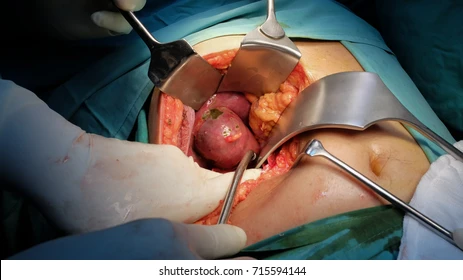
Gallbladder surgery, medically known as cholecystectomy, involves the surgical removal of the gallbladder, which is a small organ that stores bile produced by the liver. This procedure is commonly performed when gallstones, inflammation, or other gallbladder conditions cause significant symptoms or complications. Here’s information on the possible long-term effects of gallbladder surgery:
What Is Gallbladder Surgery Recovery Like?
Recovery from gallbladder surgery typically occurs in phases, with most patients returning to normal activities after the healing period. During the initial recovery period, you may experience mild discomfort at incision sites and temporary changes in bowel habits. The body gradually adapts to functioning without a gallbladder, as bile flows directly from the liver into the small intestine rather than being stored and concentrated first.
Most people adapt well to these changes within a few months following surgery. Your digestive system learns to manage bile flow differently, and many patients report improved quality of life compared to their pre-surgery symptoms. The adjustment period varies among individuals, influenced by factors like overall health, age, and the specific surgical technique used. Laparoscopic procedures generally result in faster recovery times compared to open surgery approaches.
What Are the Long-term Symptoms?
Long-term effects of gallbladder surgery vary significantly among patients. Some individuals experience complete resolution of their pre-surgery symptoms with no ongoing issues. Others may notice persistent but manageable changes in their digestive patterns or occasional discomfort.
Common Symptoms
Common long-term effects include sensitivity to certain foods, particularly those high in fat content. Some patients report ongoing bloating or gas, while others experience changes in bowel movement patterns that persist beyond the initial recovery period. These symptoms typically remain mild and manageable with appropriate dietary awareness. Some other long-term symptoms that may develop include:
- Acid Reflux
- Abdominal Discomfort
- Diarrhea
- Nausea
Rare but possible long-term complications may include bile duct injury, which can cause ongoing digestive issues, or the development of bile acid diarrhea. Regular communication with your healthcare provider can help them identify and manage your persistent symptoms.
Post-cholecystectomy Syndrome
Post-cholecystectomy syndrome refers to a collection of symptoms that may persist or develop after gallbladder removal. These symptoms can include abdominal pain, bloating, nausea, and changes in bowel movements. The exact causes of these ongoing symptoms remain under investigation by medical researchers.
Potential factors include changes in bile composition, altered digestive patterns, or the presence of other underlying digestive conditions that were not initially identified. Some patients may have had coexisting conditions that become more apparent after gallbladder removal. Healthcare providers typically evaluate persistent symptoms through a comprehensive examination and may recommend additional testing to identify specific causes.
How Is Digestion Impacted?
Without a gallbladder, your digestive system processes fats differently than before surgery. The liver continues producing bile, but this bile is no longer stored in the gallbladder. This change can initially affect how your body processes fatty foods and may require dietary adjustments. The absence of concentrated bile storage may result in less efficient fat digestion immediately after meals. This can manifest as changes in stool consistency or frequency, particularly when consuming high-fat meals. These effects often diminish as the body adapts to its new digestive pattern.
Schedule an Appointment
Understanding the potential long-term effects of gallbladder surgery helps you make informed healthcare decisions. Each patient’s experience differs based on individual health factors and circumstances. If you are experiencing ongoing symptoms after your procedure, consult with a qualified healthcare specialist for further guidance.





